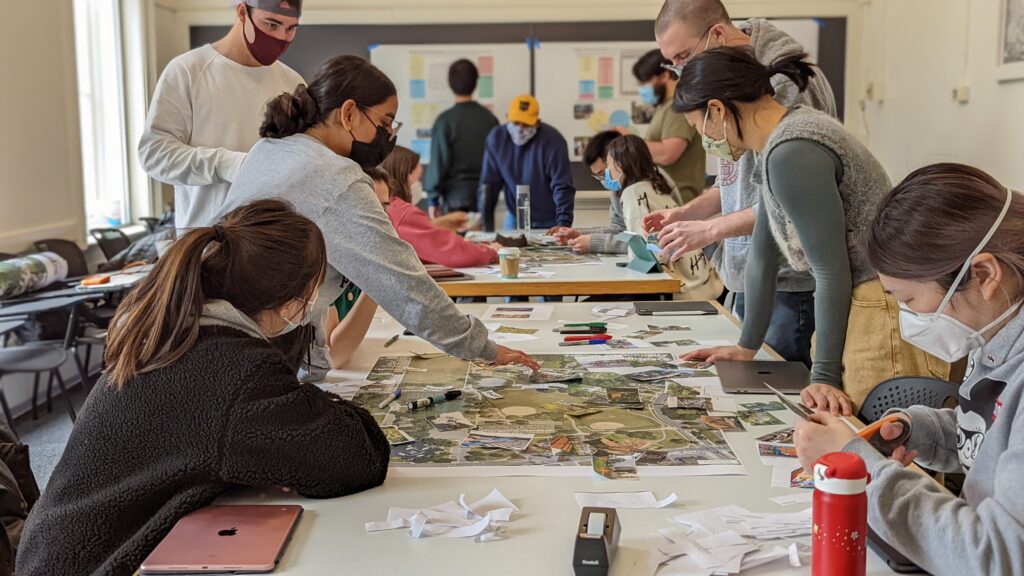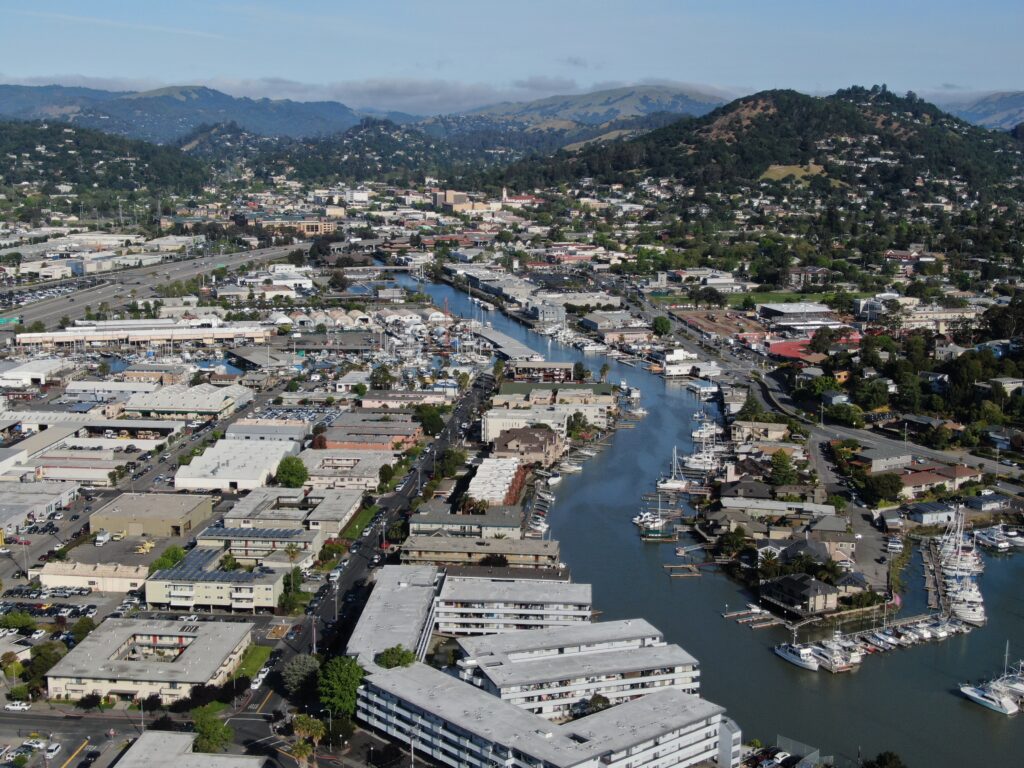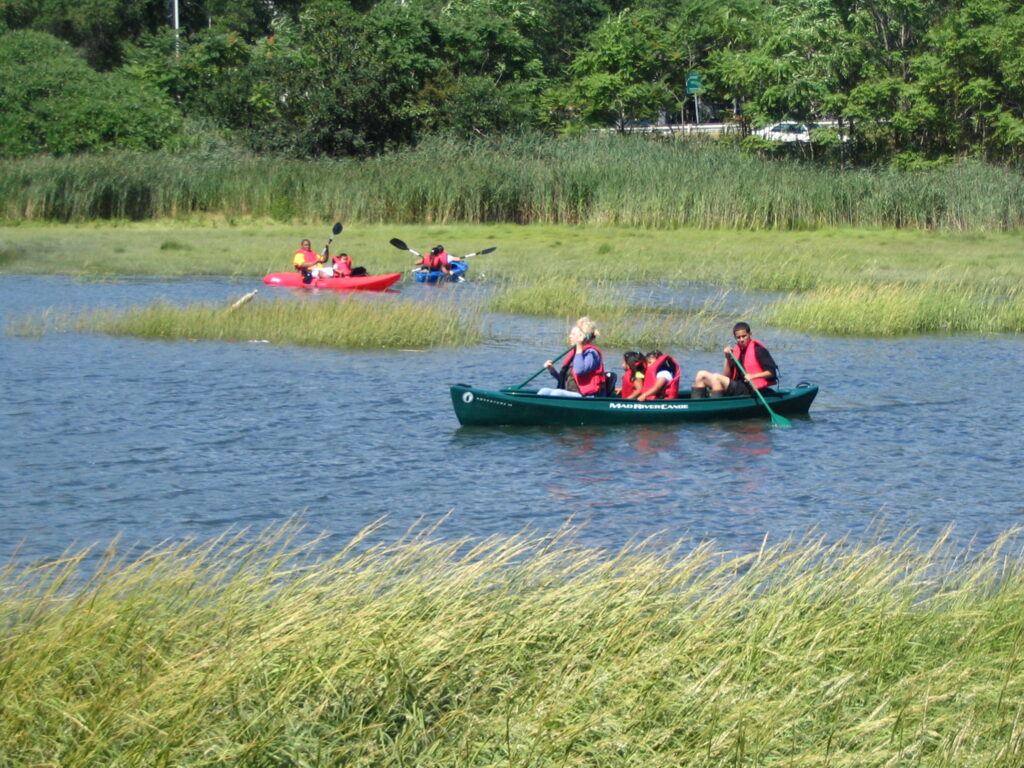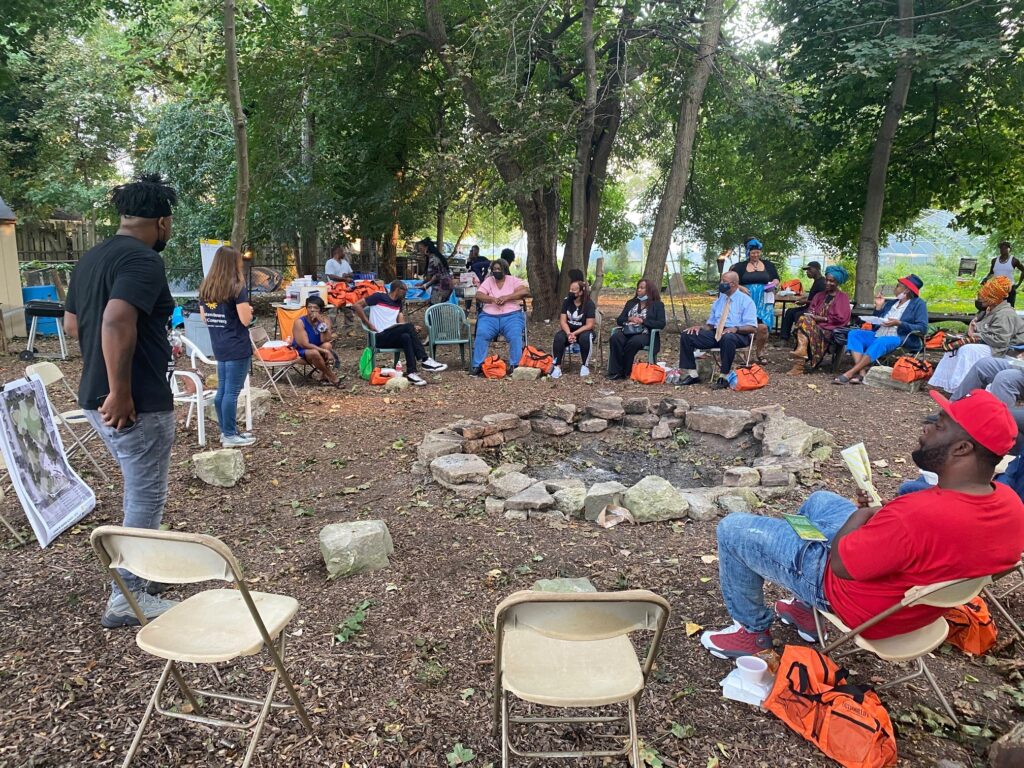BY TFN STAFF
Diverting food waste from a local landfill by turning it into fertile soil for neighborhood gardens.
Converting the site of a shuttered primary school into a much-needed community park.
Working with Native American high schoolers to create an interactive story map of schoolyard green spaces that celebrates their Indigenous histories and connections to the land.
These are just a few of the projects that will be supported by the latest round of Partners for Places grants, a joint initiative of The Funders Network and the Urban Sustainability Directors Network, which help fund efforts to create more equitable and resilient communities across the U.S.
In all, 10 U.S. communities will receive more than $2.5 million in Partners for Places matching grants to support sustainability efforts that focus largely on addressing the needs of historically marginalized communities that are disproportionately impacted by an escalating climate crisis and other environmental injustices.
These impactful projects bring together local governments, place-based funders, and frontline community groups. These relationships set the groundwork for even more action and collaboration at the grassroots level — fostering authentic engagement and input from populations and places that often bear the brunt of climate-fueled inequities but are often left out of decision-making processes.
The 10 communities receiving this latest round of Partners for Places grants are: Benton Harbor, Mich.; Charlottesville, Va.; Chelsea, Mass.; Cuyahoga County, Ohio; Flagstaff, Ariz.; Harris County, Texas; Marin County, Calif.; San Diego, Calif.; Seattle, Wash.; and Waco, Texas.
Meet the New Grantees!
In Flagstaff, Ariz., where project partners hope to create an interactive map of schoolyard green spaces that identifies gaps in access, members of a high school Native American student club will contribute stories, artwork and other content that spotlights Indigenous connections to the local land, plants and wildlife.
Cuyahoga County, Ohio will use Partners for Places funding to help convert the vacant site of a former primary school into a much-needed, 2.6-acre park that will provide a safe and accessible gathering place for the eastside Cleveland neighborhood of Hough.
Community leaders in Waco, Texas, hoping to reduce the environmentally damaging methane emissions generated by a local landfill, will use the matching grant funds to support a program that diverts extra food to those that need it and encourages converting food waste into nutrient-rich compost for gardening.
Charlottesville, Va., is also using their Partners for Places grant to support work at the intersection of food and climate justice, funding a collaborative partnership that will increase sustainable urban agriculture space on public land in a way that enhances climate protections and prioritizes grassroots community leadership.

Fostering authentic and inclusive community engagement, especially in areas that have been racially and economically marginalized, is a critical goal fueling many Partners for Places projects.
Marin County, Calif., will use this new funding to support a climate justice collaborative that brings together leaders from two Bay Area communities that face imminent risk of climate impacts, and will include leadership development, advocacy training and outreach for frontline community organizations.
“The Canal neighborhood of San Rafael and Marin City—the two Marin County communities this grant will serve—are mere feet above sea level. Those of us that live and work here already see the impacts of sea level rise and increasingly unpredictable storms,” said Canal Alliance CEO Omar Carrera. “The Marin Climate Justice Collaborative will be led by residents and will use their wisdom to identify, create, and prioritize climate resiliency solutions, improving conditions for those that live here.”
Collaborative climate justice planning is at the heart of another Partners for Places project in Harris County, Texas, home to a low-lying coastal geography, one of the world’s largest industrial corridors, and a fast-growing population. The grant will help support the co-creation of local, implementable solutions with frontline community residents who have been most impacted by climate hazards and disasters.
Benton Harbor, Mich., will use the funding to support an initiative that will develop local and regional climate action leadership, foster community engagement and help create a climate action plan that outlines federal and state funding opportunities for renewable energy programs, coastal resilience, and other critical issues.

In Chelsea, Mass., the grant will help turn the community’s vision for a vibrant and accessible Mill Creek waterfront into a reality – including plans to address climate impacts, remediate contamination, and create new green spaces with the input and engagement of community residents.
“We are delighted to receive a grant from Partners for Places,” said Roseann Bongiovanni, executive director of GreenRoots. “For nearly 30 years, GreenRoots has been working to transform what once was a forgotten and untouchable part of our waterfront, along the Mill Creek, into a more accessible, ecologically rich area that offers walking trails, salt marsh, passive and active recreation in Chelsea. While we have achieved much, there is still much work to do.”
Two communities selected for the latest round Partners for Places will receive dedicated funding specifically for green stormwater infrastructure projects.
San Diego, Calif., will use the funding to generate a community-centered scope for green stormwater infrastructure improvements to the under-invested and physically compromised Chollas Creek Watershed, and to support a watershed-focused partnership between the city, community-based organizations and local landscape design and engineering firms.
In Seattle, Wash., the grant will help strengthen community collaboration and ensure that planned green stormwater infrastructure investments in the southwest Seattle neighborhoods of Delridge benefit those who have lower access to opportunity and greater displacement risks.

Grants at a Glance
The latest Partners for Places grant recipients, project descriptions, matching funders and frontline community groups are:
- Benton Harbor, Mich. ($74,740): To support the Benton Harbor Justice 40 Initiative to develop local and regional leadership for climate action, restorative community partnerships, and fund development in an environmental justice community. Frontline community groups: Benton Harbor Community Development Corp., West Michigan Sustainable Business Forum, and Project NEED Foundation. Matching funder: Americana Foundation ($25,000).
- Charlottesville, Va. ($180,000): To support Just Food, Just Climate, a collaborative partnership that cultivates relationships, skills, and action at the intersection of food and climate justice. Frontline community group: Cultivate Charlottesville. Matching funders: Charlottesville Area Community Foundation and Hartfield Foundation ($180,000).
- Chelsea, Mass. ($150,000): To implement their community’s vision of waterfront access, climate justice and land sovereignty along Mill Creek. Frontline community group: Matching funder: Barr Foundation ($75,000).
- Cuyahoga County, Ohio ($180,000): To foster vibrancy and climate resiliency by repurposing 2.6 acres of vacant land, formerly a Cleveland Metropolitan School District site, into a park. Frontline community groups: Village Family Farms, Little Africa Food Co-Op, Western Reserve Land Conservancy, Famicos Foundation. Matching funders: FirstEnergy Foundation, Bank of America (Cleveland), Reinberger Foundation, Dominion Energy Charitable Foundation ($190,000).
- Flagstaff, Ariz. ($70,000): To map green space/schoolyard infrastructure and access to advance equitable district-wide climate justice for all in response to Flagstaff’s Climate Action & Neutrality Plans. Frontline community groups: Ita Hopi Lavayi, Flagstaff High School Native American Club, Flagstaff Unified School District, Terra BIRDS. Matching funders: Arizona Community Foundation of Flagstaff and GeoFamily Foundation ($44,00).
- Harris County, Texas ($150,000): For climate justice planning that aims to co-create local, implementable solutions with frontline residents who have been most impacted by climate hazards and disasters. Frontline community group: The Coalition for Environment, Equity, and Resilience (CEER). Matching funder: Jacob and Terese Hershey Foundation ($100,000).
- Marin County, Calif. ($180,00): To create lasting capacity for frontline community involvement and leadership in local climate resilience decision-making in Marin County. Frontline community groups: Canal Alliance, Play Marin, Multicultural Center of Marin, and Marin City Climate Resilience & Health Justice. Matching funder: San Francisco Foundation ($180,000).
- San Diego, Calif. ($120,000): For equity-driven Green Infrastructure planning for the Chollas Creek Watershed, including supporting a partnership between the city, community-based organizations and local landscape design and engineering firms and generating a community-centered GSI Plan scope for the watershed region. Frontline community groups: Groundwork San Diego-Chollas Creek on behalf of the Chollas Creek Coalition. Matching funder: The Hervey Family Fund at San Diego Foundation ($60,000).
- Seattle, Wash. ($180,000): To facilitate input into two green stormwater infrastructure projects, develop a maintenance and programming plan, and fund improvements at a site to build trust and demonstrate responsiveness. Frontline community group: Delridge Neighborhoods Development Association. Matching funder: This local funder has requested anonymity ($90,000).
- Waco, Texas ($150,000): To provide education and infrastructure for composting and gardening with goals for food waste recovery, food production, and methane reduction at the local landfill. Frontline community groups: Mission Waco Urban REAP, Da’ Shack Farmers Market Health and Wellness, Inc., Family of Faith Worship Center, Global Revive, and World Hunger Relief Institute, and Baylor University. Matching funder: Cooper Foundation ($150,000).
About Partners for Places

To date, Partners for Places has awarded $10.7 million across North America in this successful matching grant program, leading to more than $21.5 million in investments.
Partners for Places, led by The Funders Network (TFN) in partnership with the Urban Sustainability Directors Network (USDN), will provide $1,434,740 in funding to these 10 communities through the grant program. With contributions from local matching funders, a total of $2,528,740 will be committed to fund sustainability projects in these selected communities. This grant cycle includes a total of $450,000 in Partners for Places grants and local matching funds awarded to the green stormwater infrastructure projects in San Diego and Seattle.
The matching grant program brings national funder investors together with place-based funders to support equitable, sustainable climate action and green stormwater infrastructure projects. The program is currently supported by The JPB Foundation, The Kendeda Fund, The Kresge Foundation, New York Community Trust, and the Pisces Foundation.
Partners for Places FAQ’s

→ Where is Partners for Places making an impact?
Read previous grant announcements in our Meet the Grantees section and explore the Partners for Places Grantee Map.
→ Where can I learn about completed Partners for Places projects?
Visit the Partners for Places Idea Bank to explore what grantees are doing, learning and sharing.
For more information about Partners for Places, please reach out to Ashley Quintana, ashley@fundersnetwork.org.

[…] without whom progress would stall.Flagstaff is fortunate to have received a grant from Partners for Places, a joint initiative by The Funders Network and the Urban Sustainability Directors Network, which […]